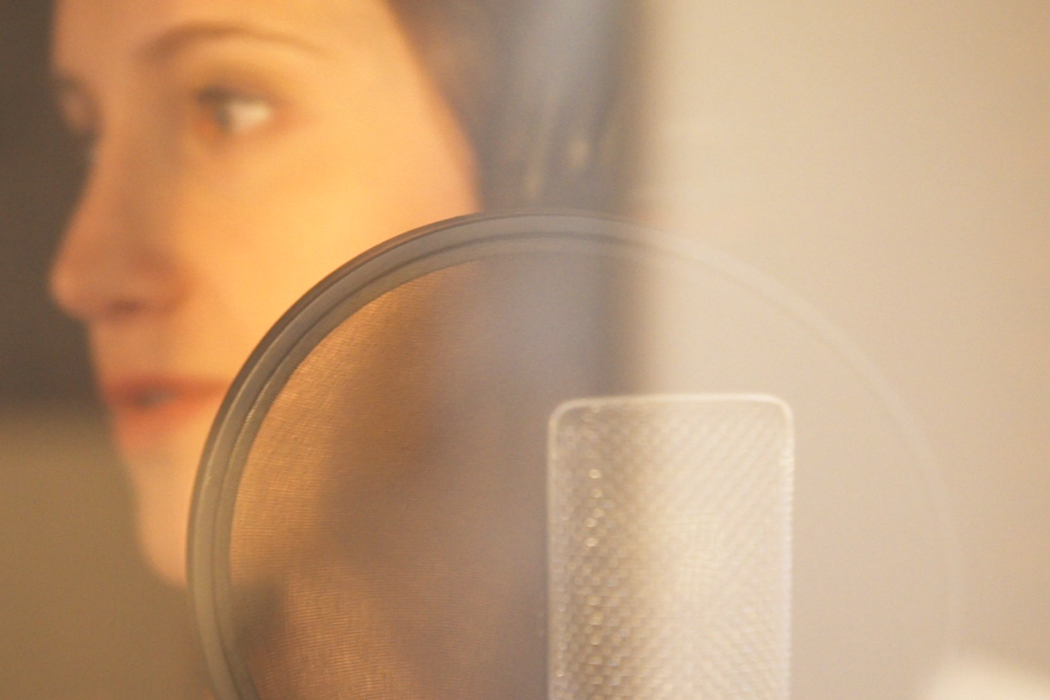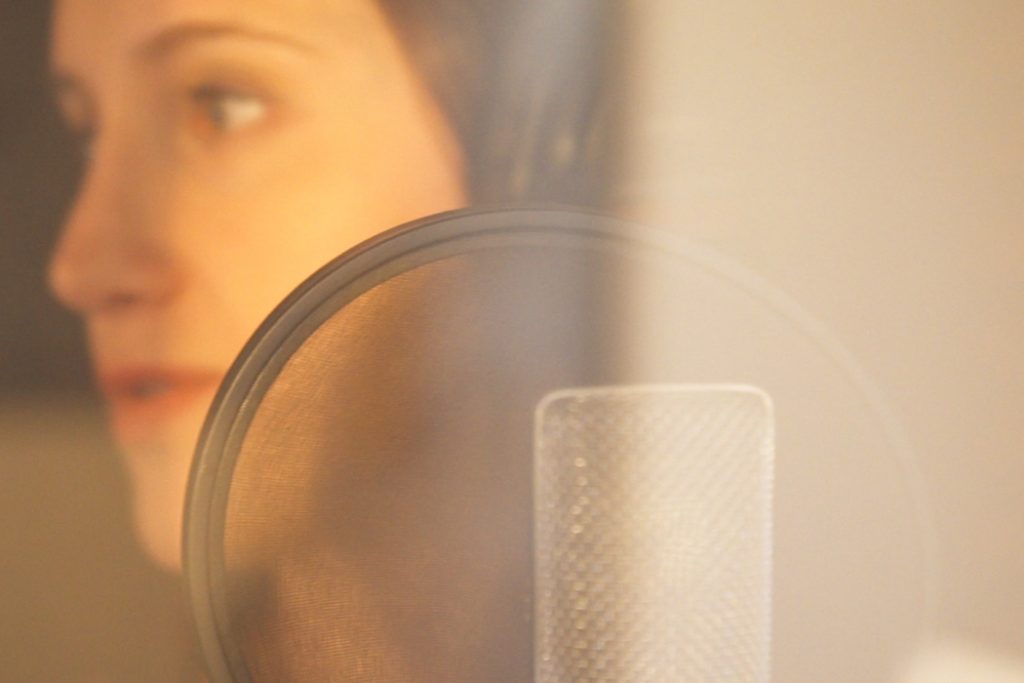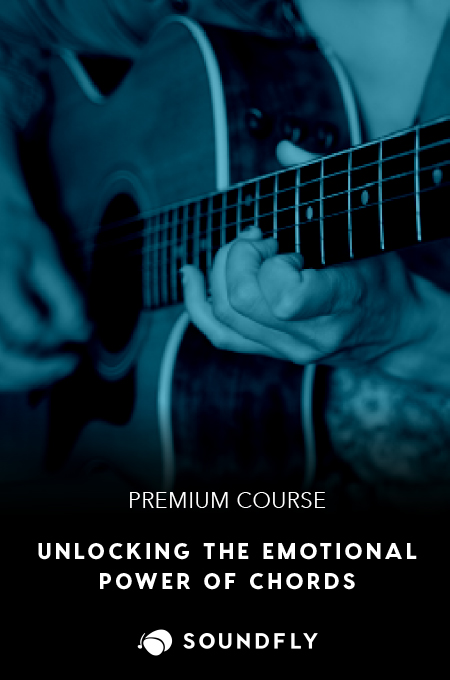
+ Create deep, complex chord progressions and melodies in your tracks with Soundfly’s highly-acclaimed course Unlocking the Emotional Power of Chords.
I once read a story about the violinist Isaac Stern, in which he was confronted by a fan backstage after a concert. Gushing at how beautifully he played, she exclaimed “I’d give my life to play like you!” To which Stern curtly replied, “Lady, that I did!”
Studying music can of course be an incredibly positive experience with many meaningful, inspiring, and fun moments. But there can be some pretty challenging moments too.
Like stressful orchestra rehearsals with an intimidating conductor, the fear of disappointing your teacher, worries about being judged by your peers, and the occasional spike of frustration or simmering rage at your passive-aggressive stand partner.
Negative emotions like fear, anxiety, shame, or guilt are certainly not fun, nor are they good for our general well-being.
But what sort of impact do emotions like this have on our learning? Is this something that just comes with the territory and makes us stronger because of it? Or are negative emotions like this detrimental to our growth and development?
First-Year Medical Residents
A group of Dutch and Brazilian researchers (Kremer et al., 2019) conducted a study of 60 medical residents who were in the first week of their residency program. They were randomly assigned to one of two groups: an emotional group and a control group.
A short video…
Everyone started out by watching a three-minute video clip of a resident being interviewed by a committee of doctors, who were evaluating the resident’s treatment of a patient who died of a heart attack while in his care. However, the groups saw two very different versions of this interview.
While the control group saw the committee interview the resident in a “cooperative and polite” manner, the emotional group saw a committee that was “accusatory and aggressive” towards the resident.
The idea was for the experience of watching another resident going through a stressful or threatening situation to induce some negative emotions in the emotional group. Emotions like indignation, anxiety, or fear.
“Negative emotions like fear, anxiety, shame, or guilt are certainly not fun, nor are they good for our general well-being.”
A few questions…
After watching the clip, the residents answered several questions about what they had just observed, to get a sense of whether it elicited any emotional reactions at all.
A short text to study…
Next, the participants were presented with a short medical text to study: Oxidative damage during cardiac arrest and cardiopulmonary resuscitation.
They were told that there was no rush to get through it, and they could take as much time as they needed. When they were finished, they answered a few questions that gave researchers a sense of how engaged or involved they were with the assignment.
And then a free-recall test…
And finally, they completed a simple free-recall test, where they were asked to write down everything they could remember from the text.
So…what happened? Did the residents’ emotional state while studying have any impact on their learning?
+ Learn production, composition, songwriting, theory, arranging, mixing, and more — whenever you want and wherever you are. Subscribe for unlimited access!

A Few Differences
Emotional state
Even though I suspect that watching a potential colleague go through a stressful evaluation is not going to elicit anywhere near the level of stress that going through it yourself would, the vicarious experience of seeing a resident get grilled was enough to induce slightly more negative emotions in the emotional group than the control group (4.5 out of 5 vs. 4.2 out of 5, where where 5 = very bad or deeply unpleasant emotions, and 1 = very good or very pleasant emotions).
Engagement
Interestingly, the slightly more negative emotional state did not appear to affect the emotional group’s level of engagement while studying. That is to say, those in the emotional group felt like they worked as hard and were as absorbed in the task as those in the control group.
However, there was a significant difference in the amount of time the participants spent studying. While those in the control group spent about 14 minutes studying, residents in the emotional group spent only 8 1/2 minutes studying.
Test performance
Could it be that anxiety about finding themselves in the same situation portrayed in the video heightened their alertness, and enabled them to get through the text more quickly?
Well, no, not so much.
Because there was actually a pretty big gap in performance between the two groups on the test. When it came time to recall everything they could about the material they just read, the control group had an average score of 20.23. The emotional group, on the other hand, averaged a score of just 11.55.
Why?
It makes intuitive sense that being in a negative emotional state would compromise one’s learning. So it’s nice to see some actual evidence of this.
But I think the more interesting question is why? As in, why do negative emotions compromise learning?
One Possibility
Well, the authors didn’t set out to pinpoint the causal mechanism in this study, but they note that the emotional group’s reduced study time might explain some of this.
“While the residents felt similarly engaged, some of their cognitive resources may have been taken up by the processing of their negative emotions, leaving them with fewer resources available to absorb the content of the text.”
However, they also note that the lack of a difference in engagement scores suggests that while the residents felt similarly engaged, some of their cognitive resources may have been taken up by the processing of their negative emotions, leaving them with fewer resources available to absorb the content of the text, relative to those who were in a more neutral headspace.
“It can…be that dealing with emotions ‘depletes’ part of the cognitive resources that would be available for learning. Apparently the same, limited set of cognitive resources employed in, for instance, understanding a new text, is applied to regulate emotions and thoughts. If emotions capture part of these resources, fewer resources remain for processing the text content information.”
So, what can we do about this?
+ Read more on Flypaper: “Learning Is Not Linear.”
What to Do
Well, that’s a tricky question, as it’s impossible to eliminate all negative emotion from life or the learning process. And even if we could eliminate negative emotions from the learning process, that’s not necessarily a good thing either.
Because learning how to navigate stressful situations and manage negative emotions is a valuable life skill, and there are studies which have found that in the right situation, certain types of negative emotions (like frustration) can be motivating, or even helpful to performance.
I think the key is to be on the lookout for moments when a particular type of negative emotion creeps into the picture. Times when “ego threat” enters into the feedback we give to students or ourselves.
Yeah, but what does that mean exactly?
Ego threat
Another recent study found that when participants experienced failure, and interpreted that failure in such a way that threatened their ego, there was a tendency to mentally disengage from the task and stop paying full attention. Which in turn, prevented participants from fully absorbing the information they otherwise might have from their mistakes.
“Because their own ego was not threatened when observing someone else fail, they actually learned and retained significantly more from watching others fail, than trying and failing themselves.”
The most interesting part of this research, was when researchers had participants watch someone else work through a certain set of problems, rather than working through the problems themselves. Because their own ego was not threatened when observing someone else fail, they actually learned and retained significantly more from watching others fail, than trying and failing themselves.
Or as the researchers summed up:
“…the more failure is dissociated from the self, the less people tune out, and the more they learn from failure.”
So, how do we put this into action?
How to Take Action
1. Instructive feedback
As a teacher or parent, one thing we can do is try to make feedback more instructive — à la John Wooden (as described here) or Pat Summit (as described here) — and less judgmental or evaluative.
2. Keep an eye out for ego-threat
Another thing we can do is to keep an eye out for signs of ego-threat-related emotions like fear or anxiety or shame or discouragement during lessons.
Because some students could potentially misinterpret constructive feedback as an indication that they lack the talent or ability to play a certain passage in tune, or up to tempo, or with the right kind of sound. Especially if this is something they’re already saying to themselves every day in the practice room.
3. Try talking to yourself in the third person
Which speaks to the importance of making sure we don’t get into the habit of being our own worst critic, and telling ourselves that we’re talentless, mediocre hacks every time we miss a note.
To that end, research suggests that talking in the third person can often help us speak more constructively to ourselves, and achieve the sort of self-distancing that can help keep our brain in a more effective problem-solving headspace (more on third-person self-talk here).
Like saying: “Hmm…Noa keeps playing those chords out of tune. I think it’s because his thumb is clenching too much. Maybe next time he could lift up the violin more so the weight of the instrument is supported more by his collarbone and less with the left hand.”
Instead of: “$%@! I can never get those chords in tune!”
Don’t stop here!
Subscribe to get unlimited access to all of Soundfly’s course content, an invitation to join our members-only Slack community forum, exclusive perks from partner brands, and massive discounts on personalized mentor sessions for guided learning. Learn what you want, whenever you want, with total freedom.
—
 Performance psychologist and Juilliard alumnus & faculty member Noa Kageyama teaches musicians how to beat performance anxiety and play their best under pressure through live classes, coachings, and an online home-study course. Based in NYC, he is married to a terrific pianist, has two hilarious kids, and is a wee bit obsessed with technology and all things Apple.
Performance psychologist and Juilliard alumnus & faculty member Noa Kageyama teaches musicians how to beat performance anxiety and play their best under pressure through live classes, coachings, and an online home-study course. Based in NYC, he is married to a terrific pianist, has two hilarious kids, and is a wee bit obsessed with technology and all things Apple.




